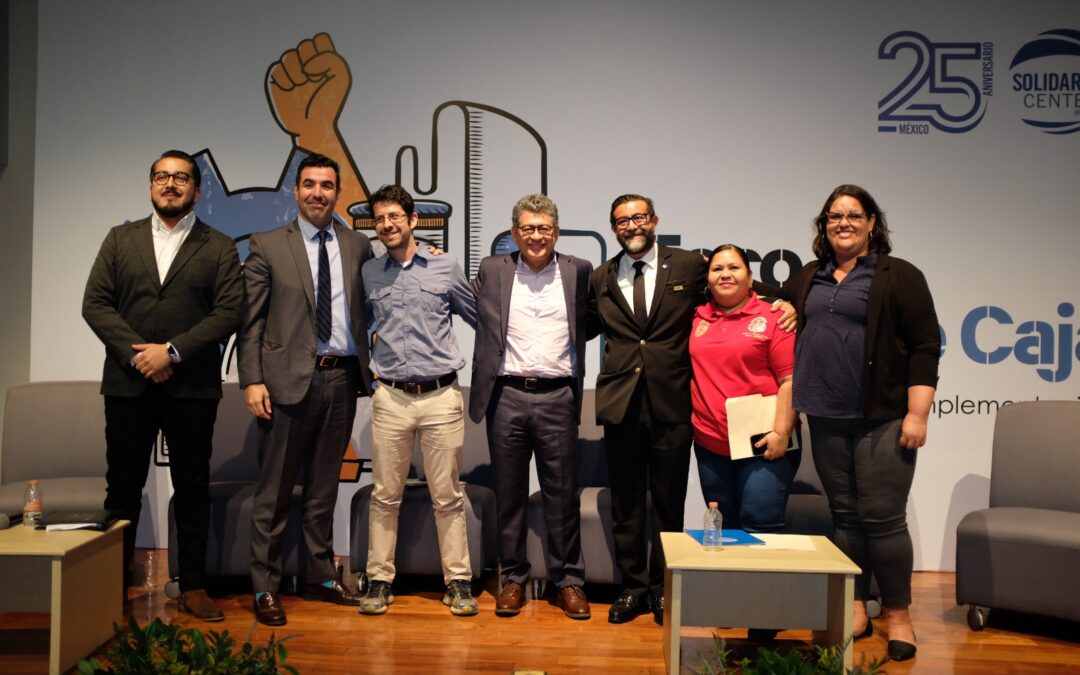“This Changed My World”: How U.S.-Funded Labor Programs Built a New Generation of Democratic Union Leaders in West Africa—and What We Stand to Lose
In Liberia, union halls are not just places where workers gather to discuss wages. They are where democracy comes to life.
Daniel K. Weah Sr., Deputy Secretary General of the United Workers Union of Liberia (UWUL), knows this firsthand. For years, he watched as Liberian women in male-dominated industries—from mining and energy to transportation and agriculture—were overlooked, unheard, and unsafe at work.
That began to change when the Solidarity Center, with support from the U.S. Department of Labor’s Bureau of International Labor Affairs (ILAB) program, launched the “Elevating Women’s Participation in the Workplace” initiative across West Africa.
“The Solidarity Center ILAB/USDOL program was so beneficial to us,” Daniel said. “It was good for our union operations and had a positive impact on the lives of union members across West Africa.”
The program sparked something powerful. Study Circles gave women the space and tools to grow their leadership, and gave men the chance to confront and reject norms that perpetuate violence and harassment against women. In factories and fields, on rubber plantations and in union halls, something shifted.
“Women were being motivated to participate in workplace leadership contests, roles traditionally held by men in our country,” Daniel recalled. “This program helped us, as trade unionists—men and women—understand how to properly address safety issues at work, making our workplaces better for everyone.”
The results were real. In April 2025, Lydia Togba was elected National President of UWUL—a generational achievement made possible by years of investment in inclusive leadership development.
“The election of a female National President…was a direct result of these efforts—a life-changing and generational impact on our movement.”
Daniel says that by making space for everyone, especially women and young people, the union itself became stronger.
“Making sure everyone is involved in the labor movement, not just the same few people, has made our union more democratic, more creative and more powerful. When women bring their ideas, when young workers speak up, when leadership reflects all of us, we are better able to solve problems, to organize, to win,” he said. “For example, women can use their own experiences as women to help us better negotiate things like maternity leave or safety protections against harassment at work—and it makes all of us better for it.”
But then, Solidarity Center’s funding from the U.S. Department of Labor’s ILAB was cut. The ILAB program ended abruptly. And the momentum—the hard-earned gains—now hang in the balance.
“The cutting of funding…not only adds anxiety amongst the women workers, but it has created a setback for the ‘Study Circle’ activities, which were motivational,” Daniel said. “We pray that the Solidarity Center will be able to regain some support and funding for the resumption of these activities.”
The loss is not just felt at work. These programs created ripple effects throughout communities.
“The knowledge gained from the training has a lasting impact that extends beyond the workplace into the communities, as workers share their learnings with family members and friends,” Daniel said. “This is an example of how our unions truly help make life better for people, not just at work, but in the communities where we live. Losing programs like the ones the Solidarity Center provides is a horrible thing for West Africa and our world.”
Daniel’s leadership journey didn’t stop there. He also completed a two-phase training with the Global Labor Leadership Initiative (GLLI), run by the Solidarity Center and Cornell University’s School of Industrial and Labor Relations (ILR). The experience deepened his understanding of how democratic unions contribute to civic life and global solidarity.
“This GLLI program changed my world,” he said. “I understand so deeply now how so much of our work is connected—how what we do in our unions affects our lives in our communities, affects our world—and how we as worker leaders are connected all around the globe. Realizing the power of our collective voice and actions globally has made me a more confident, inclusive and strategic leader.”
Through GLLI and Solidarity Center support, Daniel built lasting relationships with unions like the United Steelworkers in the United States. Together, they now strategize across borders to hold multinational corporations accountable to labor rights in global supply chains—the same rights many companies publicly commit to but often fail to uphold.
“Sometimes we will be sitting across the table from companies, and they look stunned when they realize the information we have and the knowledge we have from organizing together as workers around the world,” he said. “This is exactly what they do as global capital, but they are surprised when we do it as workers.”
That, Daniel says, is why programs like GLLI matter—and why they are often threatened.
“This is the kind of power they don’t want us to have, workers organizing, speaking up, coming together across borders. That’s why we have to keep these programs going. If we want a real say in the decisions that affect our lives, not just at work but our whole lives—we need strong unions and strong leadership. That’s what real democracy means for us.”

